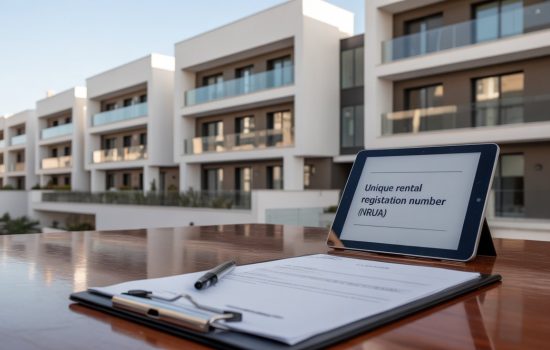Spain’s tax authorities are prepared to punish those taxpayers who do not declare income obtained from privately renting property they own by removing the 60% deduction on rental yields. In other words landlords will no longer be able to declare just 40% of their rental income for tax purposes.
The Central Economic-Administrative Court (TEAC) has unified criteria so that those taxpayers who are verified by the Treasury as second home owners who have not declared rental income will no longer be able to benefit from the 60% reduction of on obtained yields.
Currently, Article 23.2 of the Personal Income Tax Law in Spain allows for a 60% reduction on the taxable portion of rental income, which applies specifically to residential properties. However, problems arise when the taxpayer has not voluntarily declared rental yields, only doing so when the Treasury has initiated a verification or related inspection.
The Director of the Tax Inspection Department of the Tax Agency has requested that the reduction on the leasing of property intended for housing as regulated in article 23.2, only applies to the income declared by the taxpayers in their personal income tax return, before the beginning of any verification or inspection procedure that refers to rental income.
What are The Consequences of This Change?
From now on, if a taxpayer has not declared the income from the rental of housing in their personal income tax and is inspected, they can’t request the reduction of 60% and have to pay tax on all rental income received.
Taxes in these cases will include rental income not declared in the taxpayer’s self-assessment, without the 60% reduction. Therefore, the taxpayer will be liable for 100% of the yields obtained and not just 40%.
However, the reduction can still be applied by a taxpayer even if they did not include rental income in their IRPF declaration as long as they submitted a voluntary declaration before being notified of the start of a verification inspection.
As a general rule property rental income is included in general income and therefore is taxable at general progressive rates. The expenses related to such income, such as interest paid on loans linked to the acquisition of the property, local taxes, depreciation and so on, are deductible within certain limits. In the case of rental income derived from housing, once the net income is calculated, only a 40% figure should be subject to taxation if everything is in order with the landlord’s submission.
Who has to pay tax on rental income?
EVERY homeowner in Spain must declare their income taxes annually. Even if your property has been empty for a while during the past year you must make a tax declaration. The process for declaring your income taxes depends on if you are considered a resident for tax purposes or not. According to your status, you will submit Form 100 for Residents and Form 210 for Non-residents. If any of the following points apply to your personal situation then you will be considered a resident for tax purposes:
- You stayed in Spain 183 natural days or more.
- Your main economic activities are based in Spain
- Your husband/wife lives in Spain together with their children
Conclusion
With visitors to Spain at record numbers, there is increasing pressure on landlords to declare incomes from holiday rentals. With the additional incentive of a 60% tax reduction subject to declaration of full rental income, more landlords are likely to ensure they are verified as recognized landlords offering short term rentals in Spain.
- View more post about: Non-Resident Tax Return, Rental Income Declaration, Tax Investigation





